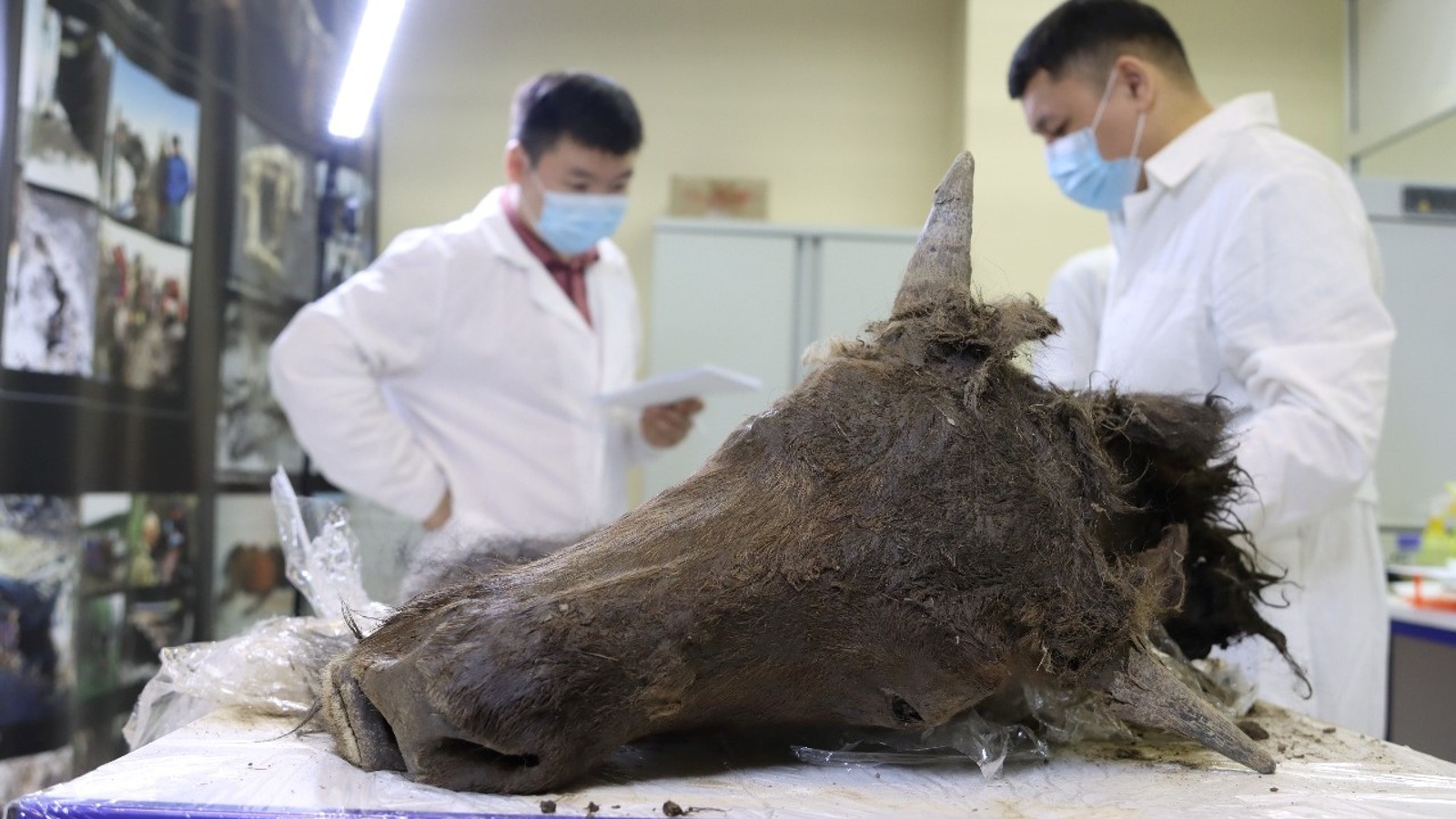Scientists want to clone an extinct bison unearthed from Siberian permafrost. Experts are skeptical.
Researchers in Russia recently dissected a mummified bison dating back to around 8,000 years ago. The remains are so well preserved that the team thinks the extinct animal could be cloned, but others disagree.
Get the world’s most fascinating discoveries delivered straight to your inbox.
You are now subscribed
Your newsletter sign-up was successful
Want to add more newsletters?

Delivered Daily
Daily Newsletter
Sign up for the latest discoveries, groundbreaking research and fascinating breakthroughs that impact you and the wider world direct to your inbox.

Once a week
Life's Little Mysteries
Feed your curiosity with an exclusive mystery every week, solved with science and delivered direct to your inbox before it's seen anywhere else.

Once a week
How It Works
Sign up to our free science & technology newsletter for your weekly fix of fascinating articles, quick quizzes, amazing images, and more

Delivered daily
Space.com Newsletter
Breaking space news, the latest updates on rocket launches, skywatching events and more!

Once a month
Watch This Space
Sign up to our monthly entertainment newsletter to keep up with all our coverage of the latest sci-fi and space movies, tv shows, games and books.

Once a week
Night Sky This Week
Discover this week's must-see night sky events, moon phases, and stunning astrophotos. Sign up for our skywatching newsletter and explore the universe with us!
Join the club
Get full access to premium articles, exclusive features and a growing list of member rewards.
Researchers in Russia recently completed a necropsy, or animal autopsy, on a stunningly intact extinct bison that was unearthed from Siberian permafrost. The tissues recovered during the dissection are so well preserved, the team believes the long-dead specimen could be cloned.
But one expert told Live Science that it is a long shot.
The mummified creature, which belongs to an unknown species of extinct bison, was discovered at the Khaastaakh locality in the Verkhoyansk region of Russia in summer 2022 and donated to the Mammoth Museum Laboratory of North-Eastern Federal University (NEFU) in Yakutsk. Preliminary investigations revealed that the bison was a juvenile of unknown sex that was between 1 and 2 years old when it died. Scientists don't know yet when the bison lived, but similar specimens found in 2009 and 2010 dated to between 8,000 and 9,000 years ago, NEFU researchers wrote in a statement.
During the necropsy, researchers took samples of the bison's wool, skin, bones, muscles, fat and horns, as well as completely removing the animal's brain. The tissues are so well preserved that there is hope they could be used to revive the extinct species.
Related: The CIA wants to bring back woolly mammoths from extinction
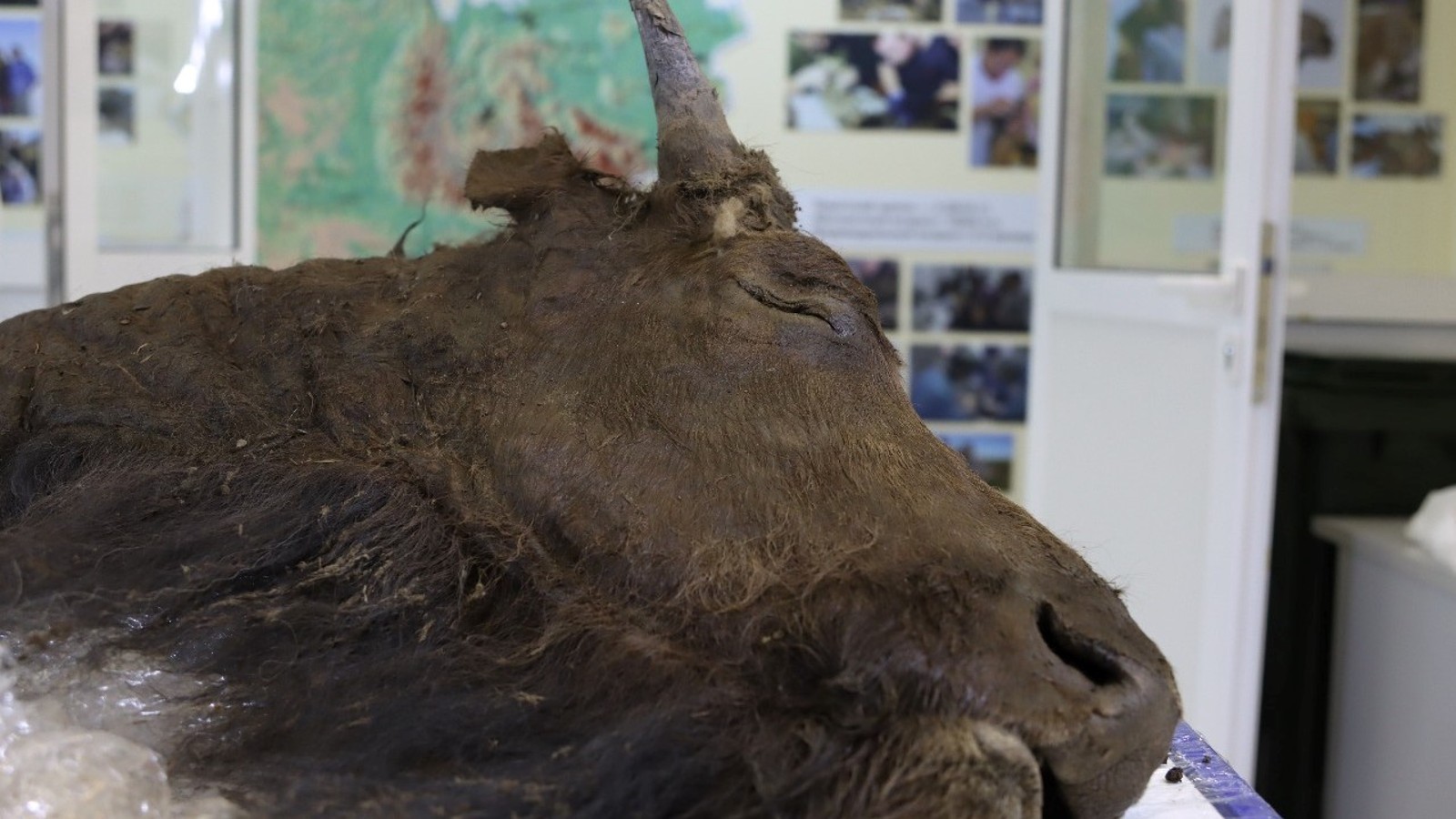
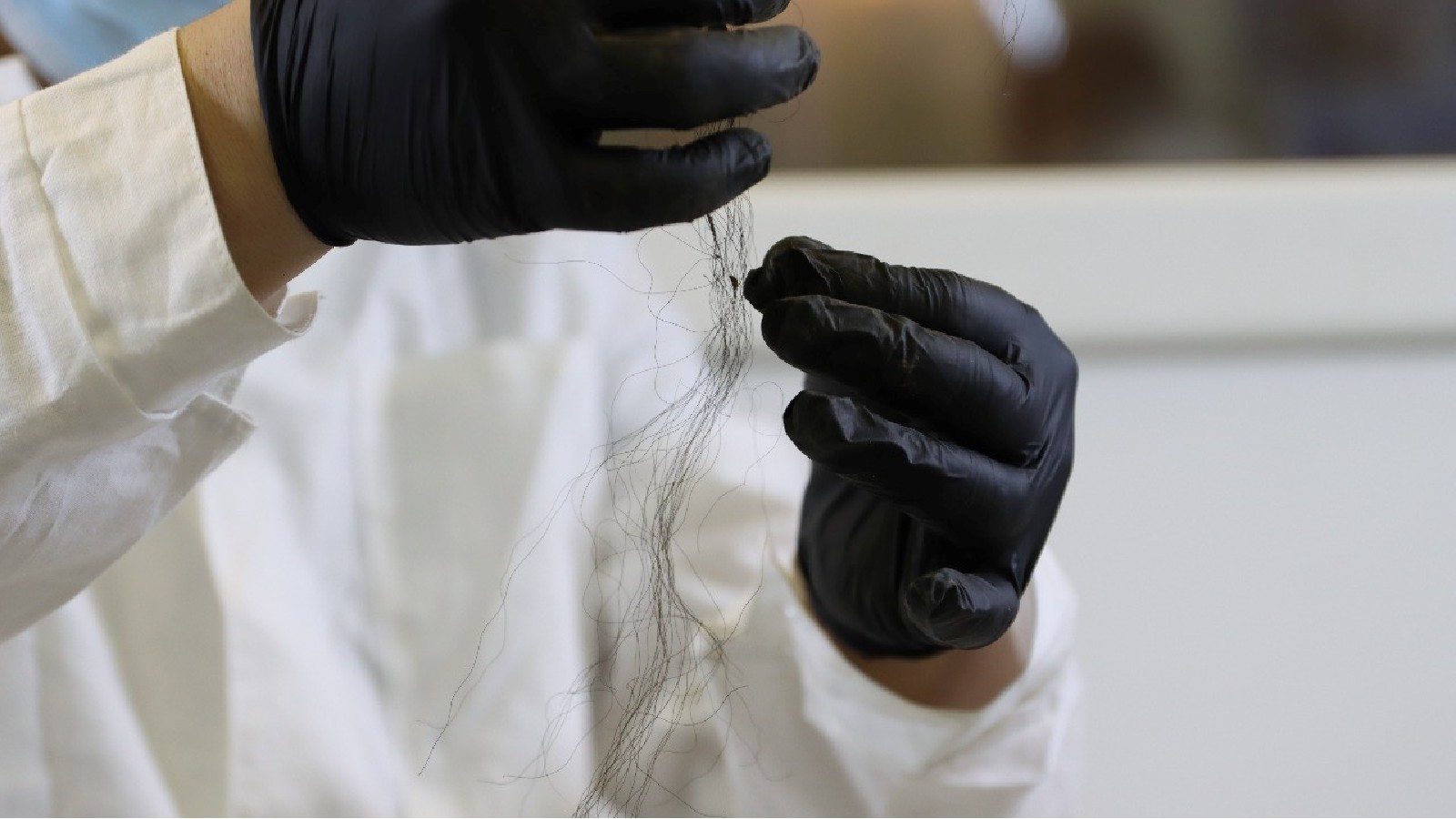
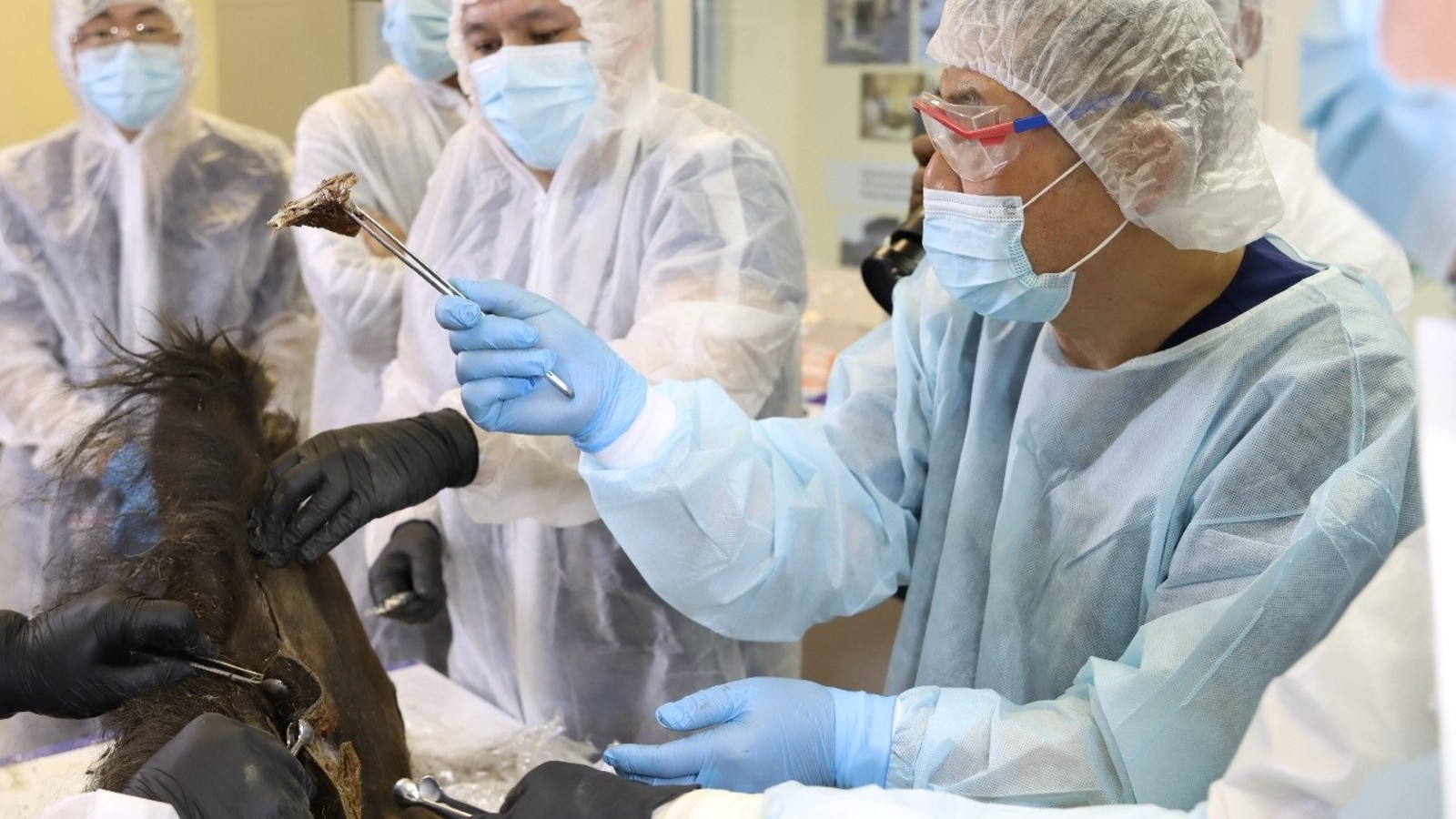
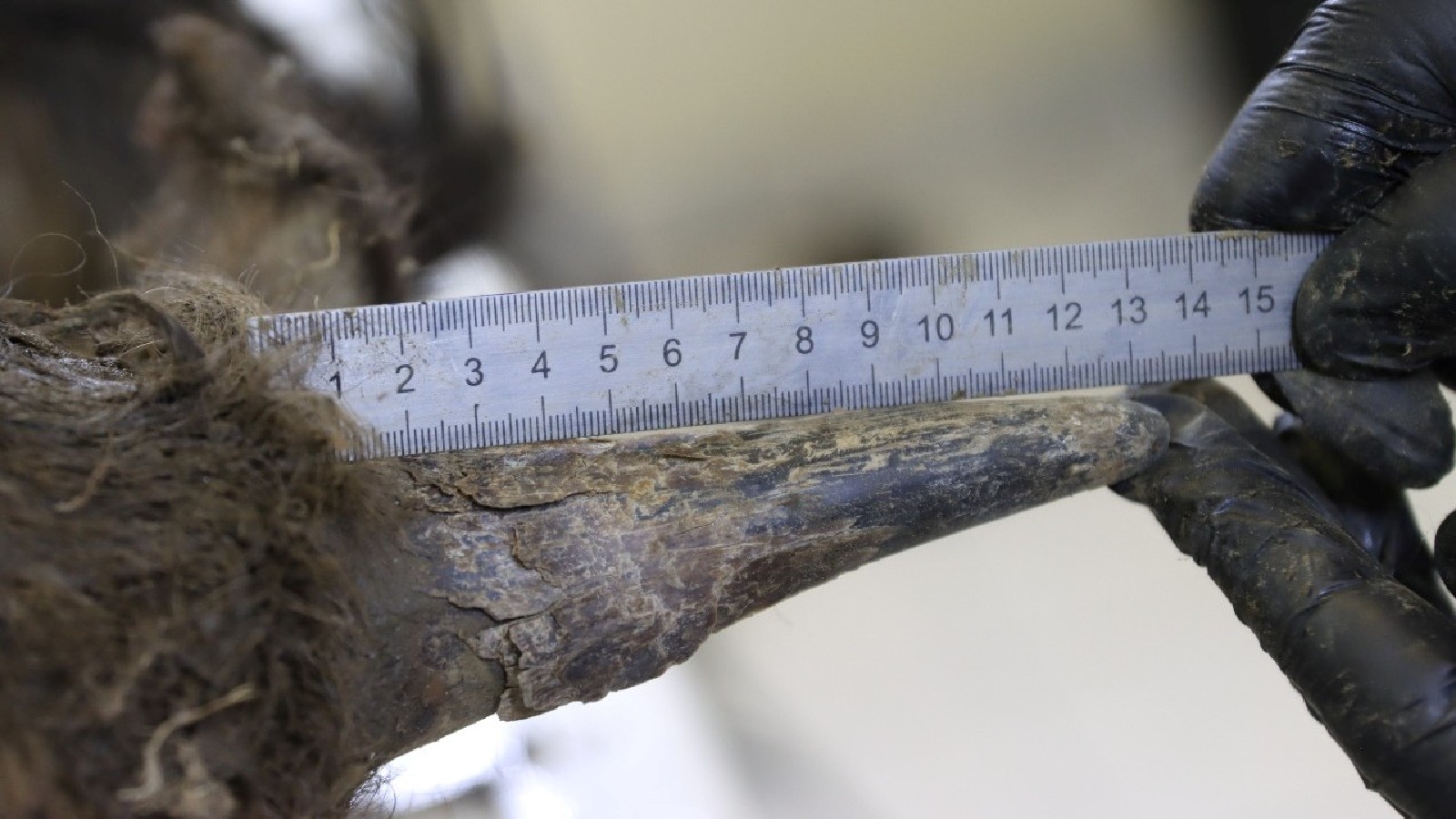
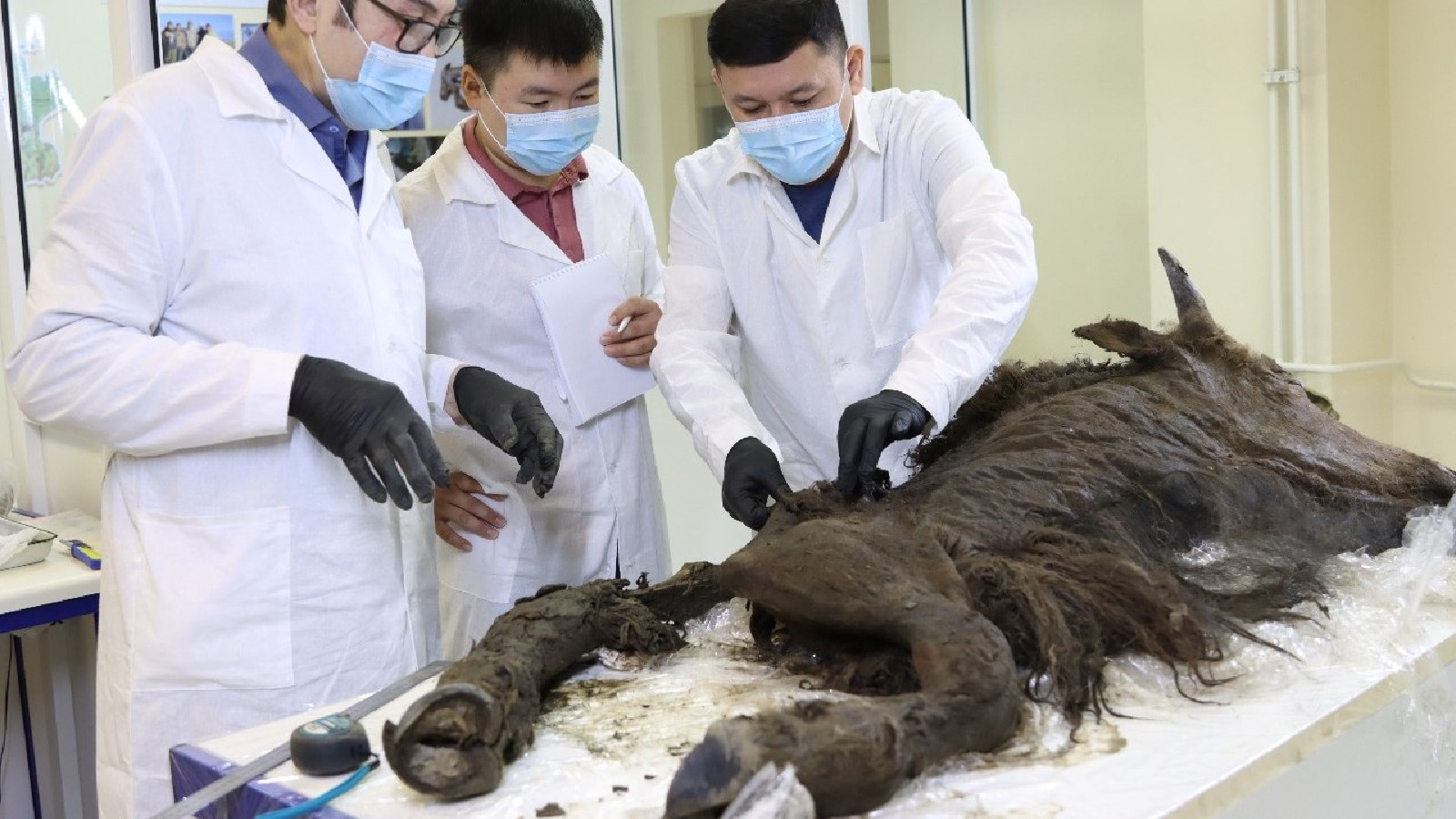
"We are working with a unique find that could be cloned in the future thanks to selected materials," Hwang Woo Suk, a former cloning expert and NEFU collaborator, said in the statement. (Hwang was fired from the University of Seoul National University in South Korea in 2006 and narrowly avoided jail time after faking results and breaking bioethics rules while attempting to clone embryonic human stem cells.)
The researchers want to return to where the bison was found to look for other specimens that could help them revive this lost species. However, not everyone is convinced that ancient bison can be cloned.
Get the world’s most fascinating discoveries delivered straight to your inbox.
"In my view, it is not going to be possible to clone extinct animals from tissues like this," Love Dalén, a paleogeneticist at Stockholm University in Sweden who was not involved in the necropsy, told Live Science in an email. Although the tissues are exceptionally well preserved, the DNA within them is likely too degraded to be cloned, he added.
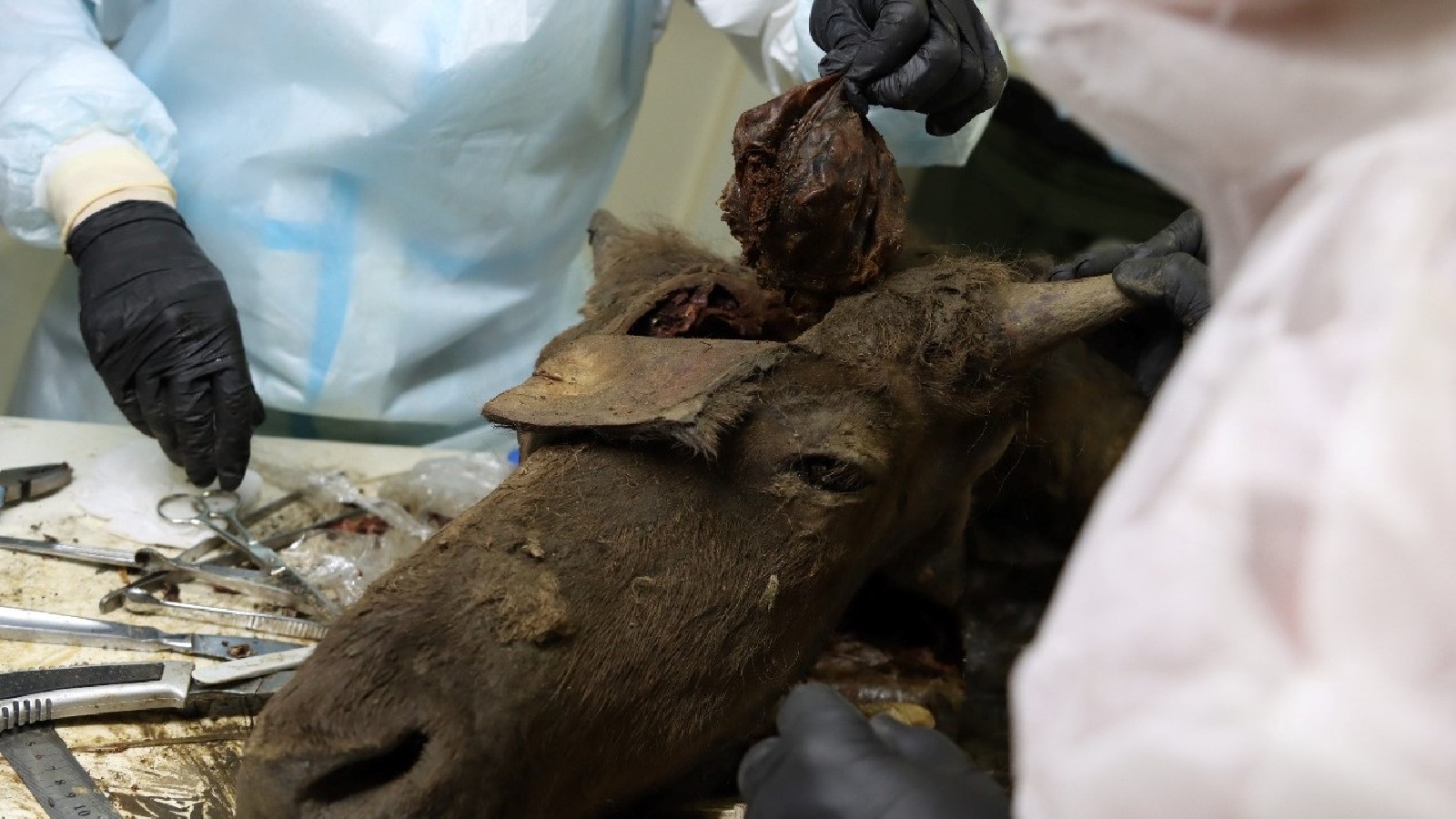
"To make cloning possible, one needs to find intact chromosomes, but what we see even in the best specimens is that each chromosome is fragmented into millions of pieces," Dalén said. "In my view, it is more likely that you can flip a coin and get heads a thousand times in a row than it is to find an intact chromosome from a specimen that is thousands of years old." (Chromosomes are thread-like structures made up of DNA that are found in a cell's nucleus.)
However, it may be possible to sequence a majority of the bison's genome, which could be combined with DNA from other specimens of the extinct species as well as living bison to eventually revive the extinct animal, Dalén said. This would still be extremely difficult, but the likelihood of success is "many orders of magnitude higher" than directly cloning the specimen, he added.
NEFU scientists also recently dissected a mummified bear unearthed on a remote Russian island that they thought belonged to an extinct species of cave bear dating back to 22,000 years ago, but the specimen turned out to be a 3,500-year-old brown bear instead.

Harry is a U.K.-based senior staff writer at Live Science. He studied marine biology at the University of Exeter before training to become a journalist. He covers a wide range of topics including space exploration, planetary science, space weather, climate change, animal behavior and paleontology. His recent work on the solar maximum won "best space submission" at the 2024 Aerospace Media Awards and was shortlisted in the "top scoop" category at the NCTJ Awards for Excellence in 2023. He also writes Live Science's weekly Earth from space series.
 Live Science Plus
Live Science Plus










